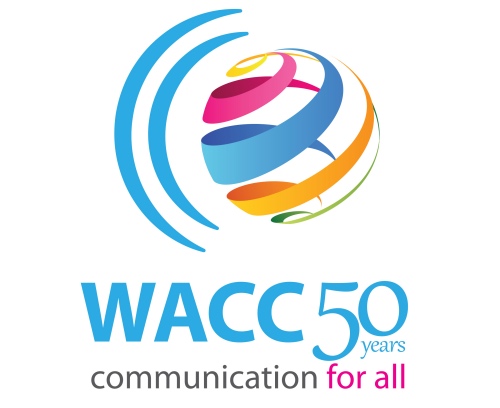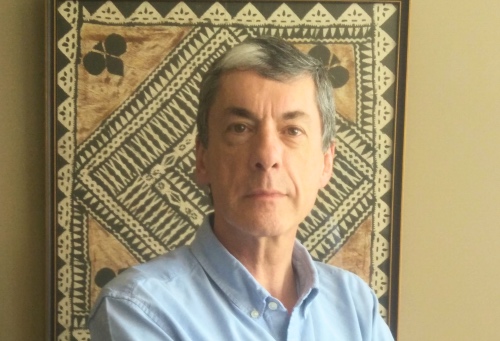
The World Association for Christian Communication this year marks its 50th anniversary. In an interview with DAVID ADAMS, Philip Lee, general secretary of the WACC, reflects on the Canadian-based organisation’s history, purpose and future challenges…
The World Association for Christian Communication this year marks its 50th anniversary. Philip Lee, general secretary of the WACC, reflects on the Canadian-based organisation’s history, purpose and future challenges…
This year marks the 50th anniversary of the World Association for Christian Communication. What is the organisation’s purpose?
“WACC takes a rights-based approach to its work in order to advance social justice and gender equality, and to promote communication for sustainable development. WACC believes that communication rights enable all people everywhere to express themselves individually and collectively by all means of communication. They are vital to full participation in society and are, therefore, universal human rights belonging to every man, woman, and child.”

Communciation towers in the US. PICTURE: Hamish Duncan/Unsplash.
“It’s not really a question of why communication should be a right since human beings cannot exist without communication, cannot build communities and societies…The call for communications rights to be recognised is about guaranteeing accessibility, affordability, and equitable resources.”
How did the formation of the WACC come about?
“Church leaders in Europe were alarmed by the use to which newspapers and radio had been put for propaganda purposes in Nazi Germany. Post-war developments in mass communications – especially the imminent arrival of television – prompted them to raise questions about the political and social impact of new communication technologies. A number of like-minded groups both church and secular in North America and Europe converged to found WACC in 1968.”
Why should the right to communication be a right, as such?
“It’s not really a question of why communication should be a right since human beings cannot exist without communication, cannot build communities and societies. Communication needs to receive the same kind of legal protections afforded to other human rights. Article 19 of the Universal Declaration of Human Rights covers freedom of expression and opinion, for example, but it says nothing about media ownership and control or language rights. The call for communications rights to be recognised is about guaranteeing accessibility, affordability, and equitable resources.”
How does the issue of ‘communication rights’ intersect with the Christian faith?
“Communication rights recognise the equality and shared human dignity of all people. While this principle applies to everyone without discrimination, the theological ‘option for the poor’ emphasises a duty of care towards the most marginalised and most vulnerable in society. By strengthening people’s voices, WACC aims to help create a more just and peaceful world.”
Who are members of the WACC and what’s the purpose of membership?
“Membership in WACC is open to people of all faiths and none. While still a membership organisation, WACC has become a movement that connects different people whose common goal is greater social justice. Today, members are communication professionals and activists all over the world as well as grassroots project partners working for sustainable development. The members of WACC are communication professionals and activists around the world who may or may not be people of faith. They join the WACC because they believe in what we are doing and because they wish to be part of the global movement. Certainly, WACC aims to join up the dots in terms of building stronger partnerships and relationships at all levels.”

What, for you, have been some of the highlights of the organisation’s work over the past half century?
“WACC was closely involved in promoting the 1970s New World Information and Communication Order (NWICO), the 1980s UNESCO-led MacBride Report (which called for more equitable information and communication flows), the 1990s Communication Rights in the Information Society (CRIS) campaign, and the following ITU-led World Summit on the Information Society (2003 and 2005). There is a trajectory here that goes back to WACC’s founding principles, but which notably includes, for example, WACC’s efforts to end apartheid in South Africa through support for alternative newspapers published by the black community. More recently, since 1995, WACC has spear-headed gender equality through its women’s programme and its internationally recognised Global Media Monitoring Project that looks at gender representations in the media.”
How is the digital revolution impacting “communication rights” around the world?
“While promising total freedom, it is raising important questions of ethical responsibility and accountability at all levels: governments, corporate entities, and individuals. Digital platforms are being used to enfranchise and to ensnare. The jury is still out on the best and fairest mechanisms for securing a balance between freedom of speech and provocation or incitement.”
One of the areas on which the WACC is focusing on until 2020 is ‘Communication for Social Change’ – can you provide some examples of what this is about?
“With the convergence of traditional and digital media, WACC is focusing on how media platforms can help advance communication rights in practice while also contributing to achieving the UN’s Sustainable Development Goals. Projects aim to strengthen the work of civil society organisations in their use of citizen journalism, community media, citizen-led media for peace, and media monitoring in order to advance democratic participation and active citizenship.”
Another is “gender and communication” which seems a timely focus given the #MeToo movement. Do the two intersect?
“Absolutely. WACC’s Global Media Monitoring Project is the largest and longest study of gender in the world’s media and the biggest advocacy initiative in the world aimed at changing the representation of women in the media. Its findings are used to change media house policies, for education, policy advocacy, public awareness, and gender-equality/women’s rights activism. In common with the #MeToo Movement, it shares a concern about how communication platforms, especially social media, are used to denigrate or harass women.”

Philip Lee, general secretary of the WACC
“While promising total freedom, [the digital revolution] is raising important questions of ethical responsibility and accountability at all levels: governments, corporate entities, and individuals. Digital platforms are being used to enfranchise and to ensnare. The jury is still out on the best and fairest mechanisms for securing a balance between freedom of speech and provocation or incitement.”
How did you personally come to be involved with the organisation?
“I joined WACC as an office boy, so to speak, but soon afterwards was invited to use my language skills in an editing and translating capacity. It was at the very beginning of what became the communication rights movement and I was fortunate enough to be able to learn from and to work with some of its leading lights. The idea that there should be communication for all – which is WACC’s motto today – is instinctively right and exciting.”
What is the WACC doing this year to mark the 50th anniversary?
“We held a one-day symposium on ‘Communication Rights Today’ in Hamburg, Germany, at the end of an important meeting of WACC’s board of directors. Rather than review past history, it was very forward looking with a notable keynote presentation by the president of Germany’s Heinrich Boell Foundation. We are also encouraging our eight regional associations to find ways to celebrate in their own way. Most importantly, we are looking at ways to secure the future by identifying partners who recognise the value of WACC and who are willing to join us on the adventure.”
~ www.waccglobal.org
~ www.centreforcommunicationrights.org





